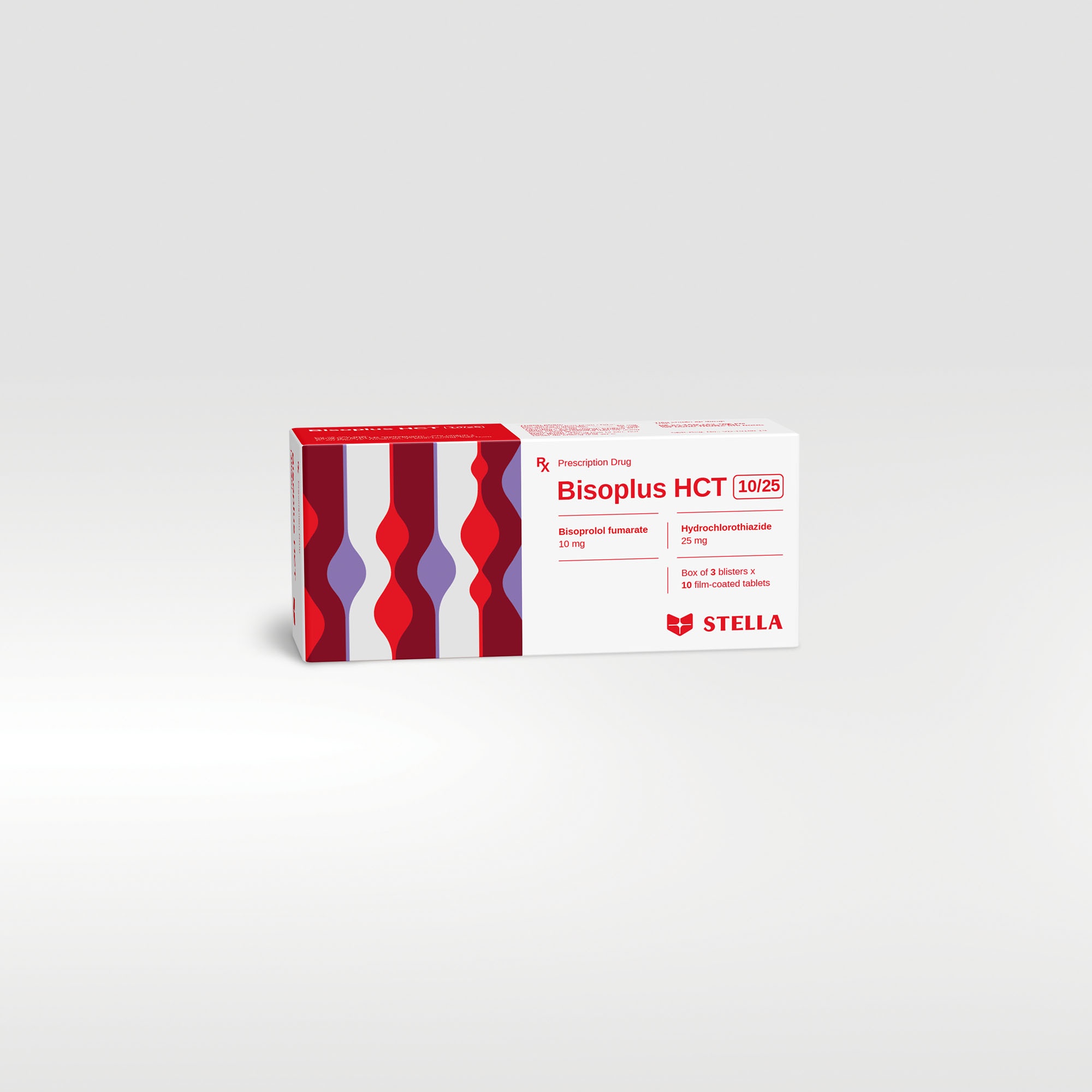Bisoplus HCT 10/25 Rx
Bisoplus HCT 10/25 is a combination preparation of bisoprolol fumarate and hydrochlorothiazide for the treatment of hypertension. The antihypertensive effects of these agents are additive; hydrochlorothiazide significantly increases the antihypertensive effect of bisoprolol fumarate.
| Pack size | Box of 30 tablets, 60 tablets. Bottle of 30 tablets |
| Shelf-life | 36 months |
| Composition | Bisoprolol fumarate, Hydrochlorothiazide |
| Dosage forms and strengths | Film-coated tablet Bisoprolol fumarate: 10 mg, Hydrochlorothiazide: 25 mg |
Product code :










